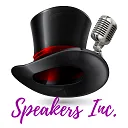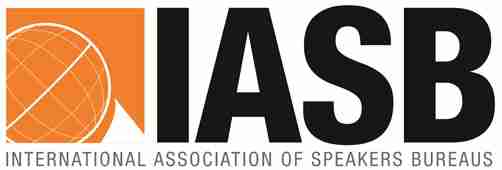- Author: Speakers Inc
- Word Count: 1999
Read the news article
The Art of Selecting the Perfect Speaker: A Step-by-Step Guide for Event Planners
In an age when live and virtual events compete for attendees’ limited attention, the value of an outstanding keynote speaker has never been higher. The right speaker can energize a room, bridge knowledge gaps, and spark meaningful conversations that last long after the event concludes. Conversely, the wrong choice may fall flat, leaving the audience disengaged and uninspired.
For event planners, selecting the perfect speaker can seem like an art form—one requiring equal parts strategy, creativity, and due diligence. This guide breaks down the process into actionable steps. From assessing the needs of your audience to ensuring the speaker’s style aligns with your event’s objectives, these insights will help you navigate the speaker selection process with confidence.
The Art of Selecting the Perfect Speaker
Understanding the Importance of the Right Speaker
Before diving into the selection process, it’s important to understand why choosing the right speaker matters. A keynote sets the tone and theme of an event. When done well, it:
- Captivates Attention: A dynamic presenter creates a memorable experience that engages attendees, making them more open to absorbing information from subsequent sessions.
- Establishes Credibility: A respected speaker can lend authority and prestige to your event, encouraging greater participation, sponsorship opportunities, and media interest.
- Shapes Perspectives: The keynote often delivers a core message or idea. A thought leader who resonates with your audience can inspire innovative thinking and meaningful change.
- Drives Value: Attendees often base their decision to attend an event on the caliber of its speakers. Securing the right speaker can elevate perceived value, increasing ticket sales and attendance.
Understanding these advantages helps justify the time and effort invested in finding the ideal speaker.
Step 1: Define Your Event’s Objectives
The first step in selecting a speaker is clarifying your event’s overarching goals. Without a clear purpose, it’s challenging to determine the expertise and style your speaker should possess. Consider questions like:
- What is the theme or core message of the event? Are you focusing on leadership, innovation, diversity, technology trends, or team-building? Clarifying this helps narrow the field of potential speakers.
- What outcomes do you hope to achieve? Are you trying to inspire a call-to-action, provide cutting-edge industry insights, or help attendees develop new skills? Different goals warrant different speaker profiles.
- Who are your sponsors and stakeholders? Consider the interests of key stakeholders. A speaker who aligns with sponsor values or industry partners can create synergy and add value for all parties involved.
By defining these objectives, you create a blueprint for finding a speaker who can help bring your event vision to life.
Step 2: Identify and Understand Your Audience
No event exists in a vacuum. The participants who fill the seats—either in person or online—have specific interests, expectations, and levels of familiarity with the topic. Understanding these factors is crucial for speaker selection.
- Demographics and Experience Level: Is your audience composed of seasoned professionals, emerging leaders, or novices in the field? A highly technical speaker might be perfect for a room of experts but might alienate a mixed-level crowd.
- Cultural and Geographical Considerations: For international audiences, ensure the speaker’s references, humor, and language are accessible and inclusive. Cultural sensitivity and global awareness help ensure the speaker resonates broadly.
- Attendees’ Motivations: Why are participants attending? Are they there to learn new skills, network with peers, or find inspiration? A motivational speaker might shine at a morale-boosting retreat, while a researcher might be best for a data-driven industry conference.
A deep audience analysis helps you select a speaker whose expertise and delivery style complement your attendees’ needs, ensuring the message not only reaches them but makes a lasting impression.
Step 3: Determine the Speaker’s Required Expertise
Once you have established your event’s objectives and understand your audience, you can start narrowing down the kind of speaker who will fit best. The speaker’s expertise should align directly with your core themes and desired outcomes.
Key Considerations:
- Subject Matter Expertise: Does the speaker have reputable credentials, published works, or a track record that aligns with the topic? For a conference on emerging technologies, consider a renowned technologist or a thought leader known for futurist insights.
- Industry Relevance: If your event focuses on a specific industry (finance, healthcare, tech), ensure the speaker has proven experience or a well-regarded perspective in that field. Their credibility fosters trust and engagement.
- Versatility and Customization: Many speakers can tailor their presentations to match the event’s theme. Check if they are willing to customize their talk. A versatile speaker who can incorporate your organization’s values, industry nuances, or current market trends will feel more relevant and impactful to your audience.
Step 4: Evaluate Speaking Style and Delivery Methods
Even a brilliant expert can fall flat if their delivery doesn’t resonate. Consider the type of presentation style that will best engage your attendees and enhance your event’s atmosphere.
Delivery Factors:
- Energy and Engagement: Does your event call for a high-energy, dynamic speaker who paces the stage, uses humor, and interacts with the audience? Or would a more formal, thoughtful presenter be more appropriate?
- Storytelling Ability: Storytelling is a powerful tool. Speakers who weave compelling narratives can humanize complex topics, making them more relatable. Consider whether your audience would respond to personal anecdotes or case studies.
- Use of Visuals and Media: Will the speaker use slides, videos, or demos to reinforce their message? Visual aids can enhance understanding but should never distract. Assess how the speaker integrates technology into their presentation.
- Interactivity: Some events benefit from workshops, Q&A sessions, or live polling. If audience participation is a priority, look for a speaker experienced in interactive formats that encourage dialogue and engagement.
Step 5: Consider the Format: Live, Virtual, or Hybrid
The rise of virtual and hybrid events has added complexity and opportunity to the speaker selection process. Some speakers excel in-person, feeding off the audience’s energy and presence, while others have mastered virtual engagement strategies.
- In-Person Events: If you’re hosting a traditional conference, ensure the speaker’s stage presence and ability to project their voice, maintain eye contact, and captivate a live audience is top-notch.
- Virtual Events: For online-only sessions, a speaker must be comfortable delivering content through a camera, keeping attendees engaged despite physical distance. Look for speakers with experience in virtual webinars, online summits, or digital training sessions.
- Hybrid Formats: If you’re running a hybrid event, consider speakers who can engage both audiences simultaneously. They should be adept at weaving digital interaction (like chat Q&As) with in-room participation for a cohesive experience.
Step 6: Research and Recommendations
By now, you likely have a shortlist of potential speaker attributes—an industry leader with strong storytelling skills, a motivational expert with a global perspective, or a technology futurist with a dynamic presentation style. The next step involves thorough research.
- Speaker Bureaus and Agencies: Reputable speaker bureaus and agencies can provide vetted recommendations. They understand the market and can match you with speakers who fit your criteria.
- Industry Referrals: Ask colleagues, partners, or sponsors for suggestions. Personal recommendations from trusted sources often yield speakers who have a proven track record at similar events.
- Online Presence and Reviews: Review the speaker’s website, social media presence, LinkedIn articles, and YouTube videos. Look for testimonials, reviews from past clients, and sample keynote videos. These resources give you a glimpse of their style, content relevance, and audience reception. Yes, every speaker will tell you are the best but be aware of those who are just a “platform speaker”.
- Previous Event Footage: Whenever possible, watch recordings of their past talks. Assess clarity, engagement, originality, and how well they hold attention. Pay attention to audience reactions, body language, and the speaker’s adaptability to different settings.
Step 7: The Interview Process
Once you have identified a promising candidate, reach out and schedule a conversation—either directly or through their representing agency. This one-on-one communication can help confirm whether the speaker is the right fit.
Key Interview Questions:
- Customization Capabilities: Ask if they’re willing to tailor their presentation to your event’s theme. A good speaker will inquire about audience demographics, key objectives, and desired takeaways.
- Adaptability: If circumstances change last-minute—such as a shift from in-person to virtual—how flexible are they? Their responsiveness and adaptability can be a decisive factor in unpredictable times.
- Follow-Up and Engagement: Will they be available for a Q&A, book signing, or breakout session after their keynote? Additional interactions can boost the speaker’s value and give attendees direct access to expert insights.
- Logistics and Requirements: Clarify their technical needs, travel requirements, and fee structure. Confirming these details early prevents last-minute surprises.
Step 8: Aligning Budget With Value
Budget considerations play a significant role in speaker selection. High-profile speakers often command premium fees, but that doesn’t automatically guarantee better outcomes. Sometimes a less-famous subject matter expert with relatable experience can deliver more value to your specific audience.
Budget Tips:
- Define Your Range: Know your budget boundaries upfront and communicate them to the speaker or their agency. This transparency saves time.
- Negotiate for Additional Value: Can the speaker participate in a VIP meet-and-greet, provide exclusive content, or offer a custom workshop? Bundling these extras may justify a higher fee by delivering more value to attendees.
- Consider Emerging Talent: Rising stars or emerging experts might offer fresh perspectives at more moderate rates. Don’t dismiss newcomers who have unique expertise or are particularly skilled at connecting with your audience’s demographic. You don’t have to “break the bank” to afford a great keynote speaker.
Step 9: Confirming Expectations and Deliverables
Once you’ve made your selection, it’s essential to formalize expectations. A clear agreement ensures both parties know their responsibilities, what success looks like, and how to handle unexpected changes.
Key Agreement Elements:
- Scope of Work: Detail the keynote duration, topic scope, and any additional sessions like panels or workshops.
- Deadlines: Confirm when materials (slide decks, bios, headshots) are due. Establish a timeframe for rehearsal or tech checks.
- Marketing and Promotion: Outline how you will use the speaker’s image, name, and promotional materials. Many speakers have guidelines for brand use.
- Contingency Plans: Discuss what happens if the speaker must cancel or if the event format changes (such as a shift to virtual). Clarity ensures both sides are prepared.
Step 10: Measuring Success and Gathering Feedback
The job doesn’t end when the applause fades. Evaluate the speaker’s impact and gather feedback from attendees, sponsors, and stakeholders. This data helps you understand whether the speaker achieved the desired outcomes and informs future event decisions.
Post-Event Actions:
- Surveys and Polls: Send out feedback forms to gauge audience reactions to the speaker’s talk. Ask about relevance, engagement, and the talk’s influence on attendees’ future actions.
- Internal Reviews: Check in with your team, sponsors, and other event partners. Did the speaker align with branding? Were they easy to work with?
- Quality Improvement: Use the insights gathered to refine your selection criteria for next time. Over multiple events, you’ll develop a sharper intuition for what truly resonates with your audience.
Embracing the Art of Selection
Selecting the perfect speaker is a deliberate process that blends logistics, empathy, and strategic thinking. It involves understanding your event’s goals, appreciating the nuances of your audience, and evaluating a potential speaker’s expertise, style, and adaptability. While it may seem time-consuming, the payoff is immeasurable: a keynote that elevates your event from routine to remarkable, leaves attendees feeling inspired, and sets the stage for long-term impact.
As an event planner, you are the curator of experiences—one who can orchestrate a meaningful narrative that engages hearts and minds. With careful planning, diligent research, and clear communication, you can master the art of selecting the perfect speaker, ensuring that every event you produce becomes a catalyst for insight, innovation, and lasting change.
Contact us at Speakers Inc and follow us on Twitter
Further articles you may enjoy:
- (18)
Artificial Intelligence in 2026: Why These Thought Leaders Matter Now Artificial Intelligence in 2026 is no longer a futuristic concept, it’s today’s most transformative force. From redefining business models and creative industries to reshaping ethics, policy, and human connection, AI is influencing how the world works, thinks, and evolves. But with exponential progress comes exponential […]
- January 23, 2026
- (14)
Speakers Who Spark Growth — Reignite Purpose. Re-frame Possibility. Realign Potential. As the season changes and the world blossoms into spring, it’s the perfect time for organizations to refresh their mindset, refocus their goals, and re-energize their teams. Growth—whether personal, professional, or organizational—starts with the right spark. And that spark often comes from hearing the […]
- March 30, 2025
- (14)
Mastering Nonverbal Communication: The Transformative Power of Body Language Coaching with Kristin Bock In our fast-paced, communication-heavy world, mastering the art of nonverbal communication can be a game-changer. Enter Kristin Bock, a body language expert and founder of Body Language Blueprints, who helps professionals leverage nonverbal cues to enhance their personal and professional interactions. In […]
- July 15, 2024
- (10)
Controversial Industry Practices: A Look at Event Planning’s Dividing Lines which thrives on creativity, innovation, and collaboration. Yet, beneath its glamorous surface lies a layer of polarizing practices that spark debates and divide professionals. These issues, while uncomfortable to address, shape the industry and influence its future. In this blog, we’ll explore some of the most […]
- January 27, 2025
- (16)
In the rapidly evolving digital landscape, businesses are increasingly turning to Artificial Intelligence (AI) in Artificial Intelligence: Revolutionizing Customer Service. AI technologies, such as chatbots, machine learning, and natural language processing, are transforming the way companies interact with their customers, leading to more efficient, personalized, and satisfactory service experiences. This article explores how AI is […]
- July 19, 2024
- (27)
Beyond the Bio: What Event Planners Really Need to Know Before Booking a Keynote Speaker “It’s not just about credentials. It’s about connection.” When organizing an event, selecting the keynote speaker can feel like scanning through a sea of shining bios and polished headshots. You’re presented with bestselling authors, award-winning professionals, and thought leaders who’ve […]
- June 20, 2025
- (4)
It is a common understanding of a vast majority of leaders that the employee engagement is a company’s most important asset. But in reality, that is only true if the majority of the workforce is fully engaged in their work. If not, they are either adding minimal value or are actively working against the organization. […]
- December 20, 2022
- (7)
Celebrating Pride 2024 season is upon us once again, a time of celebration, reflection, and advocacy for the LGBTQ+ community and its allies. As we embark on Celebrating Pride 2024, we are reminded of the progress we’ve made and the challenges that lie ahead. This year’s festivities promise to be especially memorable, with a lineup […]
- June 4, 2024
No results available











